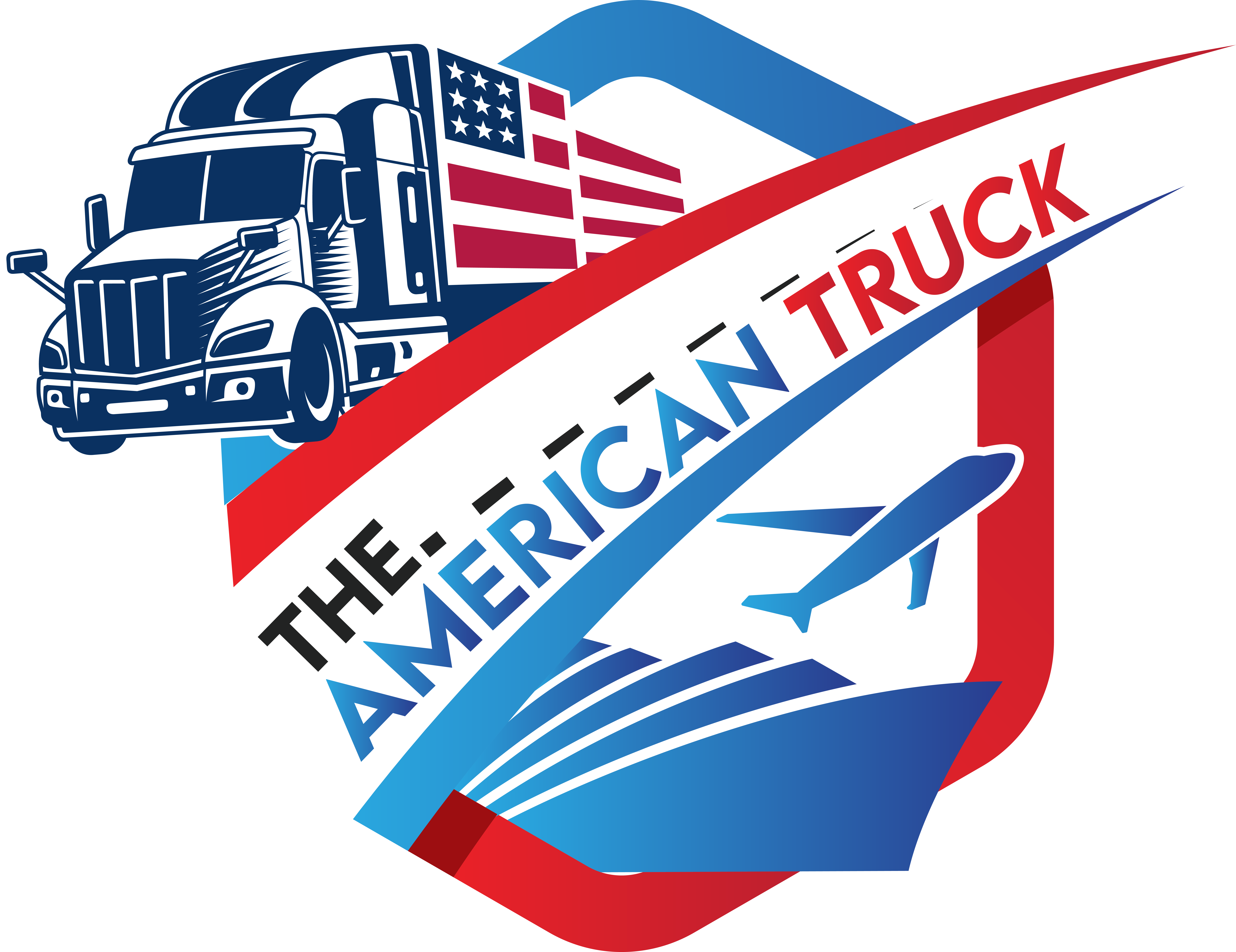Logistics is like a house of cards—pull out the wrong partner, and the whole supply chain can tumble.
Sound dramatic? Maybe. But if you’ve ever had a shipment go sideways because of a sketchy freight broker, you know it’s true.
You’re not alone. According to the U.S. Department of Transportation, more than 11 billion tons of freight move across the U.S. each year, and most of it hinges on one key player: freight brokers.
Yet many businesses still treat broker selection like a coin toss. That’s like hiring a babysitter without checking reviews—except instead of your toddler, you’re trusting someone with $200,000 in inventory.
In this guide, we’ll break down exactly how to choose the right freight broker for your business. Whether you’re shipping fresh produce or high-value electronics, you’ll walk away with tools to make smarter, safer, and more profitable logistics decisions.
At The American Truck Inc, we help U.S. businesses tackle supply chain headaches with real-time tracking, reliable carriers, and top-tier freight solutions. Our shipper services are designed to simplify logistics without sacrificing control.
Let’s dive into what separates a certified freight broker you can count on from the ones that ghost you when things go wrong.
Understand What a Freight Broker Actually Does
Before picking one, let’s clear up what a freight broker is not:
Not a carrier.
Not a 3PL warehouse.
Someone with a cousin who owns a truck.
A freight broker is the middleman between shippers (you) and carriers (the ones hauling your goods). Their job? Find the best truck at the best price—and make sure it shows up on time.
A reliable freight broker will:
Vet and manage carriers
Handle permits and documentation
Provide shipment tracking
Offer support if things go sideways
Real-life scenario: One of our clients, a regional furniture manufacturer, was bleeding money due to late LTL deliveries. Their previous broker? A guy working from his basement with a flip phone. Once they switched to a certified freight broker (ahem, us), on-time delivery rates jumped by 38%.
You wouldn’t let a random guy drive your Porsche. Why let one handle your freight?
Verify Credentials: Don’t Skip the FMCSA Check
This is non-negotiable. Always verify that your freight broker is FMCSA-licensed and bonded. Without this, you’re playing with fire—and your freight insurance may not cover losses.
Here’s what to check:
MC Number (Motor Carrier Number)
Surety Bond or Trust Fund (minimum $75,000)
Active Authority via FMCSA’s SAFER System
Pro Tip: Use the broker’s MC number to see safety records, complaints, and violations. If the data smells fishy, run—don’t walk.
A certified freight broker with transparent credentials builds trust and lowers risk. It’s that simple.
Prioritize Communication Over Everything
If your freight broker isn’t updating you proactively, you’ve got a problem.
Great brokers don’t go dark the moment a truck hits the road. They:
Offer real-time tracking
Send proactive alerts about delays
Pick up the phone (or respond fast)
Example: At The American Truck Inc., we integrate real-time tracking and personalized account reps, so you’re never left in the dark. Need to know if your delivery is stuck in Iowa? One call, one click—done.
Red Flag: If a broker only responds when you’re furious, they’re not managing your freight—they’re babysitting problems.
Silence is golden—unless your freight’s missing.
Evaluate Their Carrier Network and Specialization
Not all freight is created equal.
Shipping fresh flowers? You’ll need refrigerated trucks. Moving hazmat materials? There are permits, licenses, and a dozen ways things can go wrong.
Look for a broker with a carrier network that matches your business. Ask:
Do they have access to refrigerated, flatbed, or hazmat carriers?
Do they offer LTL, FTL, and intermodal options?
Can they handle seasonal spikes or emergency shipments?
Case in Point: One of our shippers in the Midwest needed emergency reefer trucks during a summer heatwave. Our network of certified reefer carriers had 3 trucks at their dock in 6 hours.
Trying to haul freight without the right broker is like fishing with a tennis racket. Technically possible. But ugly.”
Dig Into Their Tech Stack and Reporting
Today’s logistics isn’t just about trucks—it’s about data.
A forward-thinking freight broker uses technology to:
Provide real-time GPS tracking
Deliver KPIs like on-time rate, dwell time, and carrier scorecards
Offer EDI/API integration with your systems
If your broker still uses spreadsheets and faxes, you’re leaving money—and insights—on the table.
Ask these questions:
What tracking tools do you use?
Can I access reports through a client portal?
Do you support integration with ERP or WMS platforms?
Check References, Reviews, and Reputation
Would you eat at a restaurant with 2 stars and “never again” reviews? Of course not.
Do the same due diligence with your freight broker. Look beyond their website.
Where to research:
Google Reviews
LinkedIn testimonials
Shipper forums like FreightWaves or Reddit’s r/logistics
BBB (Better Business Bureau)
Ask for client references—and actually call them. Ask about responsiveness, problem-solving, and transparency.
One client told us, “Our last broker ghosted us mid-route. We found The American Truck Inc., and now we sleep at night.”
“Reputation in freight is like tires on a truck—bald spots mean trouble ahead.”
Test with a Trial Run Before Committing Long-Term Don’t go all-in on the first date.
Start with a few shipments before signing long-term contracts. Monitor:
On-time performance
Communication quality
Accuracy of billing
Carrier professionalism
Use the trial as a stress test. Throw in a tricky lane or last-minute request. See how they handle it.
Tip: Great brokers thrive under pressure. The bad ones blame the weather.
Freight brokers are like umbrellas. You don’t know if they work until the storm hits.”
Don’t Just Chase the Lowest Rate—Chase the Best Value
Yes, rates matter. But beware of the “too good to be true” quote. Shady brokers lure you in with rock-bottom prices, then:
Add surprise accessorials
Switch carriers last-minute
Disappear when cargo is damaged
The right freight broker offers competitive rates, not dirt-cheap ones. They explain charges, provide options, and don’t cut corners.
Real Talk: One shipper saved $200 going with a cheaper broker. They ended up paying $5,000 in damage claims after the broker used an unvetted carrier with expired insurance.
At The American Truck Inc., we balance rate transparency with risk reduction—because a few bucks saved today shouldn’t cost you thousands tomorrow.
Cheap freight brokers are like dollar store batteries—great until they melt in your remote.”
Final Thoughts: Choosing the Right Freight Broker Is a Game-Changer
Let’s face it—logistics is tough enough without worrying whether your broker’s asleep at the wheel.
Finding the right freight broker means:
Fewer delays
Lower risk
Better customer satisfaction
Peace of mind
Whether you’re shipping cross-country or across town, the wrong partner can wreak havoc on your operations. The right one? A silent MVP.
Great freight brokers are like great referees—you barely notice them because everything runs smooth.”
At The American Truck Inc., we’re more than a broker—we’re a logistics partner. Our team of experts is ready to help you optimize every mile of your supply chain.


